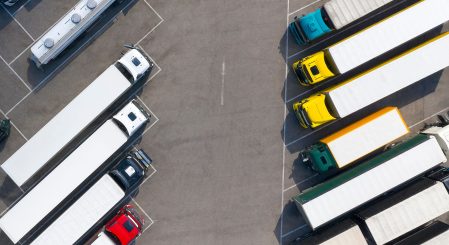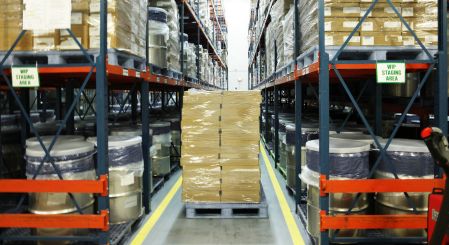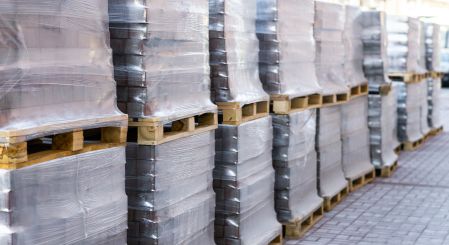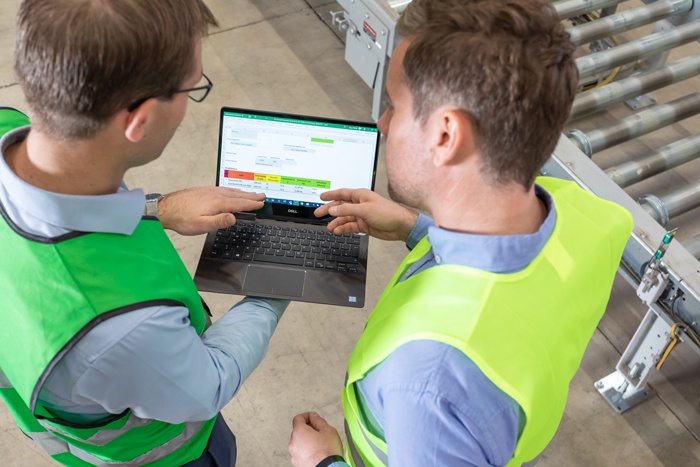Important guidelines for load securing
Answers to common questions, useful tips & tricks, and a wealth of knowledge from our team of packaging experts.
MOST READ:

01.10.2024
Pallet wrapper
Wrapping pallets is often the last stage of the packaging process before the goods leave production or the warehouse. To ensure that the goods survive the transportation route undamaged, adequate wrapping is...

19.09.2024
VDI 2700 guideline
VDI 2700 is a very comprehensive guideline that covers all aspects of load securing. Starting with the requirements for road vehicles and permissible weights and load distributions, the VDI 2700 guideline ...

29.04.2024
Stretch wrapper settings

26.02.2024
Load securing for freight forwarders
The job of freight forwarders is to transport loads from A to B - safely and reliably. For them, transport damage not only means trouble with broken goods, but also a direct risk to...

26.02.2024
DIN 55415 - Testing of loading units for transportation
DIN 55415 is a standard which at first glance promises the same as EUMOS 40509, but actually has some important differences...

30.01.2024
How can transport damage be effectively minimized?
Transport damage not only results in damaged goods, but also means a loss of time, energy and money...

11.08.2023
What is EUMOS 40509?

10.08.2023
Pallet stability - Important information for sufficient stability of your pallets
You usually realize only when it is already too late, how important pallet stability is...

18.09.2023
Load unit protection: what is it and how can it be properly checked?
Optimal load unit securing includes not only the wrapping of the pallet...
Who is liable for load securing?
The carrier or freight forwarder (§425/461 HGB) is primarily liable for damage caused by "loss of or damage to the goods during the period from acceptance for transportation to delivery". However, the legislator concedes that the carrier is exempt from liability if "the damage [...] is due to circumstances which the carrier could not avoid even with the greatest care [...]". (§ 426 HGB). Furthermore, "inadequate packaging by the sender" is considered a special reason for exclusion of liability under certain conditions (§427 (1) No. 2 HGB), so that the sender is also responsible. Damage caused during "loading [...] of the goods by the sender" can also be excluded from the carrier's liability (§427 (1) 3 HGB).
Ultimately, everyone involved in the transportation process is responsible for load securing - whether packer, shipper or carrier. With optimized transport packaging, the risk of transport damage can be reduced to a minimum while using less material.
Instruction and advice on load securing
No load securing master has yet fallen from the sky, which is why it is very important that everyone involved in the packaging and loading process has sufficient specialist knowledge to guarantee safe shipping. Thanks to our Packaging Solution Center and the expertise of our packaging optimizers and application engineers, we have the best prerequisites for communicating topics such as load unit securing and the correct use of stretch wrappers in a theoretically and practically appealing way and for providing precise and effective advice in the event of transport damage.
SEARCH
LAST ARTICLES
- Pallet wrapperby Toledo Brusius
- VDI 2700 - Load securing on road vehiclesby Toledo Brusius
- Stretch wrapper settingsfrom enviropack
CATEGORIES



